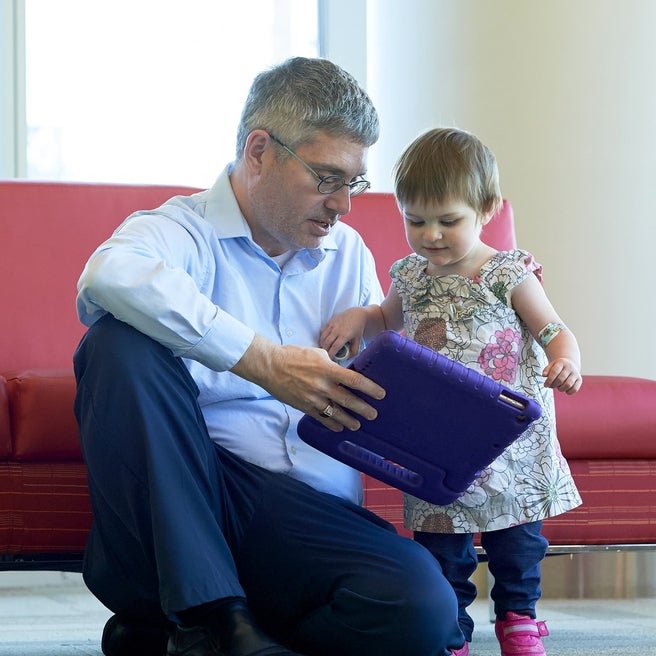Angioedema is an allergic skin reaction that causes swelling in the face, hands, feet and other parts of the body. The swelling can become so tight it becomes painful. In some cases, angioedema may significantly impact children's lives – making it difficult to perform everyday activities like walking or holding a pencil.
To ensure your child is diagnosed and treated promptly, be sure to consult with a board-certified allergist or immunologist.
Types & Causes of Angioedema
There are several types and causes of angioedema. They include:
- General angioedema, caused by hives, genetics, medications or other diseases.
- Hereditary angioedema (HAE), a genetic blood protein deficiency that typically presents when a child is young, and does not have any clear triggers.
- Acquired angioedema (AAE), which can be triggered by medications, and in some cases, autoimmune issues.
Symptoms of Angioedema
No matter the cause of angioedema, the condition causes swelling. While the most common places for swelling include the face, lips, tongue, hands and feet, it can occur anywhere on the body. The swelling can become painful and impact a child's activities of daily living.
This type of swelling is NOT associated with hives and you will not see them. You will only see the swelling. In rare cases, this type of swelling affects the throat and can block a child's breathing. If this happens, see immediate medical treatment.
Testing and diagnosis for of Angioedema
At Children's Hospital of Philadelphia (CHOP), a dedicated team of immunologists and allergy specialists collaborate to diagnose children with angioedema, determine which type they are experiencing, and determine how best to treat it.
To do this, our team performs a through physical examination, gathers a full family medical history, and in many cases, performs blood tests. Depending on which type of angioedema your child has, we will include other specialists – as needed - into their care plan. Our goal is to ensure your child's care is seamless, to provide them with cutting-edge treatments and medications that may not be available at other children's hospitals.
CHOP offers allergy clinics in the Buerger Center for Advanced Pediatric Care on the Main Campus in Philadelphia, and at CHOP Care Network locations in King of Prussia, Brandywine and Exton in Pennsylvania, and Voorhees and Princeton, in New Jersey. Immunology clinics are available at the Buerger building and in Princeton.
Treatment for of Angioedema
Treatment for your child's angioedema will depend on which type they have. In most cases, medications will be needed to help manage the symptoms. For some patients, medications will only be needed when flare ups occur, others will need to take medication daily.
Angioedema isn't curable, but it is manageable with regular monitoring and medication adjustments as needed from your child's immunologist.
Follow up care for of Angioedema
Your child with angioedema will require periodic visits with the immunologist. The frequency of those visits will depend on the severity of your child's angioedema, its severity and frequency of symptoms. If your child has a flareup of symptoms, it's important to contact your child's immunologist as soon as possible.
Long-term outlook for of Angioedema
The long-term outlook for children with angioedema is generally good when followed by an immunologist. Some types of angioedema require life-long medications and can have ongoing consequences, so It's important to transition your child's care to an adult provider when they reach 18.
Resources to help
Division of Allergy and Immunology Resources
We have compiled resources to help you find answers to your questions and feel more confident with the care you are providing your child.
